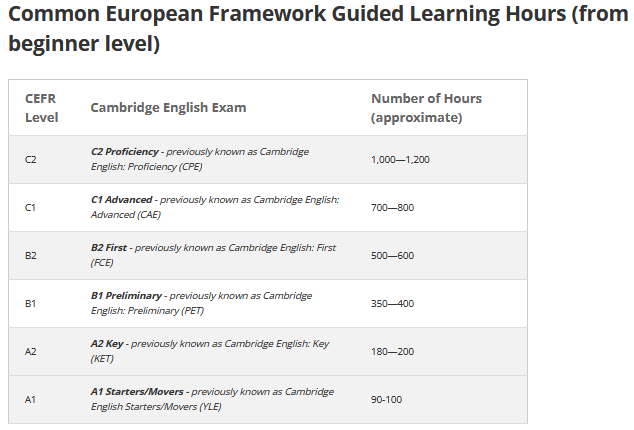Let me start by giving you the boring (but true) answer first: It depends.
Each person picks up language differently - some people learn faster, other people learn more slowly. That’s just the way it is.
But let’s dive into this a bit more.
In his book Outliers - The Story of Success, Malcom Gladwell talks about the 10,000-hour rule. This means that in order for you to achieve mastery in any domain, you need to spend at least 10,000 hours practicing it.
The book even gives us an estimate: If you spend 20 hours a week working on something (and if you do that consistently for 10 years), you will get to 10,000 hours, so in theory, you would be a master or expert at this point.
Personally, I don’t agree that a person needs to spend 10,000 hours studying English in order to learn it well. It is possible to achieve fluency in English much sooner than that.
But one thing I like about this theory is that it expresses the idea that it takes time to learn something well. You’re not going to do it in six months, a year or even two years.
By the way, if you see anybody advertising English fluency in less than two years, RUN AWAY LIKE THE PLAGUE! These people are only after your hard-earned cash.
So if not 10 years nor two years, how long then?
“Taking my own learning into account, I would say you need at least three to five years in order to become truly fluent in English.”
Also, keep in mind that you should be studying and practicing the language effectively and regularly during this time. Otherwise, it might take you even longer.
According to the Cambridge University website, a person needs around 1,200 hours of guided study hours to go from a basic level (A1) all the way to an advanced/proficient level (C2).
Looking at this table, notice that in order for you to go from one level to the next you need around 200 hours of study time.
So let’s simulate something here.
Imagine someone who’s starting to learn English from scratch (Zero). This person is at level A1, which is the first level on the CEFR.
If this person studies for hour per day, Monday to Friday, this person will have accumulated 20 hours of study time in one month. Multiplied by 12 months in a year, that makes it around 240 hours per year.
This means that this person would likely get to an advanced level of English (C1) in about three or three and a half years. So notice that we’re talking mid-term here. At least three years or more.
It’s also important to mention that it depends on how you study and practice the language. If you’re doing it on your own without the guidance of a good teacher, it might take you even longer (five or six years).
And remember: We’re talking one hour per day, Monday to Friday. If you’ve been dedicating less than five hours a week to your English, it might take even longer for you to see results.
I know this may sound a bit discouraging, but it’s the truth.
“Learning a new language is a mid to long-term process. It doesn’t happen overnight.”
That’s why it’s important for you to enjoy the process. If you enjoy the process, not only will you have a lot of fun improving your English, but also you won’t even see time pass as you do it.
Remember I told you earlier that it varies from person to person? Some people might get to the level they want sooner, others might take longer to get there.
Define your main goal for learning English. Also, define which level you want to achieve in the language.
After that, roll up your sleeves and get to work. It’s time to put in those study hours.
To your learning,
Thiago Alencar.



